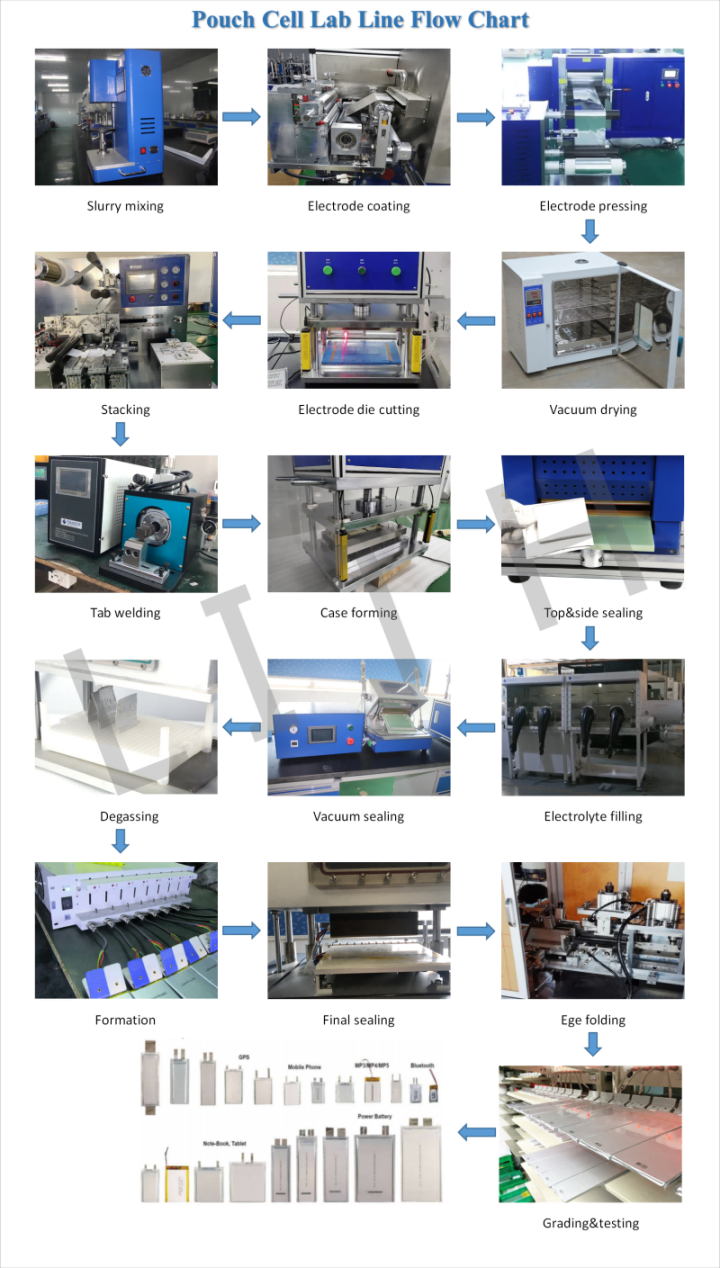The practical applications and significance of Pouch Cell lab Plant are extensive, especially in the field of lithium-ion battery technology. Here are some of their practical applications and significance:
1. Advancing Lithium-Ion Battery Technology:
Pouch Cell Research Plants are pivotal tools for research and development in lithium-ion battery technology. Researchers can conduct studies on new materials, electrode designs, and manufacturing processes, aiming to enhance battery performance, energy density, and lifespan.
2. Battery Performance Optimization:
These research facilities enable researchers to perform comprehensive testing and analysis of battery performance. They can investigate various factors affecting battery performance, including temperature, cycle life, charge-discharge rates, among others, to optimize battery designs.
3. New Energy Storage battery lab Plant:
With the growing use of renewable energy sources, Pouch Cell Research Plants support the development of energy storage systems. These systems can store energy from sources like solar and wind and release it when needed to balance grid loads.
4. Electric Vehicle (EV) Advancements:
As electric vehicles gain popularity, research plants play a crucial role in the development of advanced battery packs. Researchers can explore new EV battery lab line, including fast-charging capabilities, extended driving range, and enhanced safety features.
5. Sustainability and Environmental Impact:
Pouch Cell Research Plants aid in the development of more sustainable battery technologies. This includes research into recyclable materials, reduced use of rare resources, and eco-friendly production processes, contributing to a greener and more sustainable future.
6. Quality Control and Standardization:
These facilities help establish quality control standards for battery production. Researchers can verify that batteries meet specific performance and safety criteria, ensuring the reliability and safety of lithium-ion batteries used in various applications.
7. Education and Knowledge Dissemination:
In academic institutions and research organizations, Pouch Cell Research Plants serve as valuable educational tools. They provide students and researchers with hands-on experience in battery technology, fostering knowledge dissemination and skill development.
In summary, Pouch Cell Research Plants are instrumental in advancing lithium-ion battery technology, driving innovation, and addressing challenges related to energy storage, sustainability, and environmental impact. They empower researchers to push the boundaries of battery performance and contribute to the development of cleaner and more efficient energy storage solutions.




 Online service
Online service
